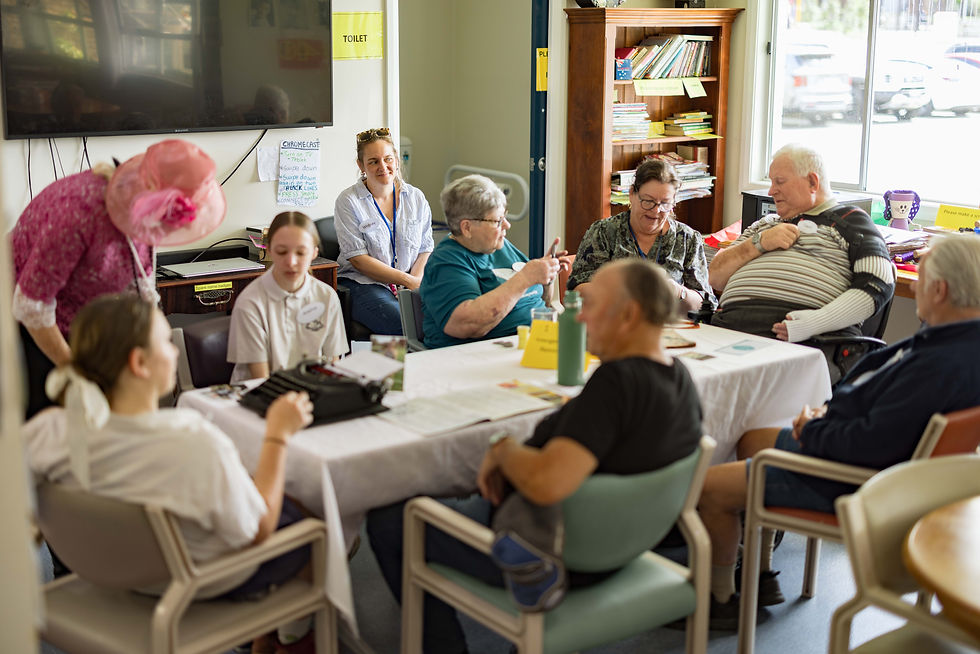The Role of a Care Partner in Your Support at Home Journey
- Omnicare Alliance

- Oct 22, 2025
- 3 min read
Updated: 12 hours ago
From 1 November 2025, the new Support at Home program will replace Home Care Packages (HCP) and Short-Term Restorative Care (STRC).
Alongside these changes, many people will continue to rely on trusted support to help them navigate aged care. At Omnicare, this support is often provided by your Care Partner.
For many older Australians, having someone by their side to help make sense of care options can make all the difference. But what does a Care Partner actually do, and how does this differ from a registered supporter under the new Aged Care Act?
This article explains:
What an Omnicare Care Partner is
How Care Partners differ from registered supporters under the Aged Care Act
Why families may still choose to nominate a supporter
How these roles can work together

What Is a Care Partner?
A Care Partner is an Omnicare team member who works with you to plan, coordinate and review your care. They are part of your provider’s service model and are there to help make your care experience smoother and more personal.
A Care Partner is not a legal role under the Aged Care Act and is not the same as a registered supporter. Instead, they are your main point of contact within Omnicare.
A Care Partner can help with:
Understanding your services and care plan
Talking through changes to your support needs
Coordinating services and reviews
Answering questions about funding, services and next steps
Making sure your care reflects your preferences
Registered Supporters Under the New Aged Care Act
Under the Aged Care Act 2024, older people have the right to nominate a registered supporter. This role is recognised in law and supports people to understand information and make decisions, if they choose.
A registered supporter is usually:
A family member
A close friend
A trusted person chosen by you
A registered supporter does not make decisions for you and does not replace your voice. Their role is to support you to understand information, communicate your wishes and participate in decisions.
A registered supporter may help with:
Attending assessments or meetings with you
Helping you understand options, costs and information
Supporting communication with providers or My Aged Care
Speaking up on your behalf, if you ask them to
How Care Partners and Registered Supporters Work Together
Under Support at Home, many people will have both:
A Care Partner from their provider, and
A registered supporter they have chosen themselves
These roles work best when they complement each other. Your Care Partner focuses on coordinating and delivering your care, while your registered supporter helps ensure your wishes are understood and respected.
Most importantly, you remain at the centre of all decisions.
Why Having Support Around You Matters
Whether it is a Care Partner, a registered supporter, or both, having support can provide:
Confidence that you are not navigating aged care alone
Clarity when systems or information feel overwhelming
Peace of mind for you and your family
Continuity as your needs change over time
This support can be especially helpful as Support at Home introduces new service lists, funding structures and contribution arrangements.
Choosing and Registering a Supporter
If you would like to nominate a registered supporter:
Think about who you trust
Talk with them about what support you would like
Register them through My Aged Care when the process becomes available
Remember that you stay in control - they support your choices, they do not replace them
Your Care Partner can help explain how this works and what to expect.
Preparing for Support at Home
To feel ready for the transition:
Talk with family or friends about whether you want a registered supporter
Review your care plan with your Care Partner
Ask how your provider will involve your supporter, if you have one
Keep communication open so everyone understands your wishes
Support at Home does not introduce a new legal “Care Partner” role, but it does strengthen the right to have support around you.
Your Care Partner continues to support you through Omnicare, while a registered supporter is someone you choose to help you understand information and speak up if needed.
Together, these supports can help you:
Navigate changes with confidence
Understand your options
Make informed choices
Continue living safely and independently at home
Need help understanding these roles?
Our friendly team can explain the difference between Care Partners and registered supporters, and help you prepare for Support at Home.
📞 Call our aged care experts on 1300 336 488



